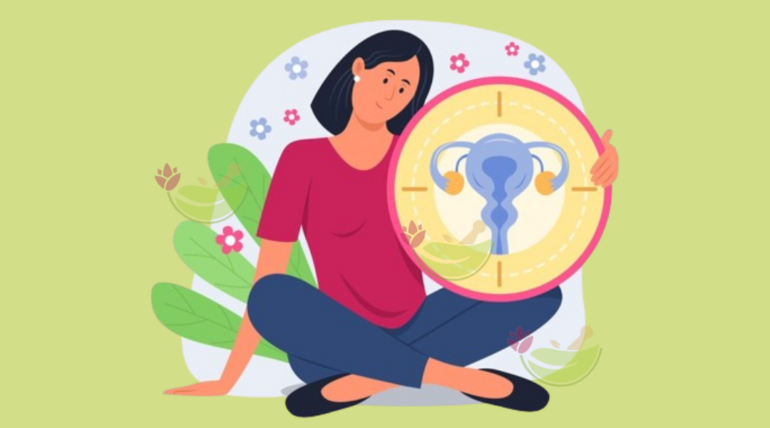The Ultimate Weapon against PCOS: Unleashing Ayurveda Panchakarma Treatment
PCOS means Poly Cystic Ovarian Disease.
PCOS or PCOD is a common disease found with a prevalence (number of diseased people in a specific area or region) rate of 10% which means it is quite common in reproductive-age females. It is one of the main causes of anovulation which leads to infertility.
PCOS is widely described in various symptoms, but the most important symptoms include irregular periods, weight gain or obesity, and excessive growth of facial hair which are high to check for PCOS.
While modern medicine offers management options, Ayurveda, the ancient Indian system of medicine, presents a holistic approach to addressing the root causes of PCOS and promoting hormonal harmony. In this blog, we will explore the symptoms of PCOS, delve into Ayurvedic principles regarding this condition, and discuss natural treatments to manage and potentially reverse its effects.
Understanding PCOS in Ayurveda
Ayurveda views PCOS as a result of an imbalance in the doshas, primarily Vata and Kapha. This imbalance especially with Apana Vaata can affect the functioning of the reproductive system, leading to irregular periods, cyst formation, and hormonal disturbances. Ayurveda emphasizes the restoration of balance in the body and mind to address the underlying causes of PCOS. One of the main causes of finding out
Common Symptoms of PCOS
Irregular Menstrual Cycles: PCOS often causes infrequent, irregular, or prolonged menstrual periods.
Ovulation Issues: Women with PCOS may experience irregular or absent ovulation, which can lead to infertility.
Hirsutism: Excessive hair growth, particularly on the face, chest, and back, is a common symptom of PCOS.
Acne and Oily Skin: Hormonal imbalances in PCOS can lead to acne and excessively oily skin.
Weight Gain: Many women with PCOS struggle with weight gain, especially around the abdominal area.
Insulin Resistance: PCOS is often associated with insulin resistance, which can lead to type 2 diabetes.
The above signs and symptoms can indicate PCOS. But for the confirmed diagnosis of PCOS, you must consult your doctor and do an Ultrasound.
Ayurvedic Treatments for PCOS
Diet and Nutrition: Ayurveda emphasizes a balanced diet to manage PCOS. Include whole grains, organic food, fiber-rich foods, fresh vegetables, and lean proteins. Avoid processed foods, excessive sugar, and unhealthy fats. Ghee (clarified butter) is encouraged for its nourishing qualities.
Medication or Herbal Remedies: Ayurvedic herbs such as Shatavari, Ashwagandha, Dashmool, and Turmeric are known for their hormonal balancing properties and can be beneficial in managing PCOS symptoms. (Before taking any medication consult your doctor)
Lifestyle Modifications: Regular exercises, such as yoga specifically Surya-namaskara, and brisk walking, can help improve insulin sensitivity, manage weight, and reduce stress.
Panchakarma: Ayurvedic detoxification procedures, particularly Vaman (therapeutic emesis), Virechana (therapeutic purgation), and Basti (therapeutic Enema) can help eliminate toxins and balance hormones.
Abhyanga: Self-massage with warm herbal oils can promote relaxation and balance Vata, which is often aggravated in PCOS.
External Therapies: Specific treatments like Udvartana (herbal powder massage) Swedana (herbal steam therapy), Shirodhara, and Nasya can support hormone regulation.
Stress Management: High stress levels can exacerbate PCOS symptoms. Meditation, yoga & Pranayama (deep breathing exercises) like Anulom-Vilom, Bhrahamari, and Sitali-Sitkari can help manage stress.
(Treatment and medicine mentioned above are only for information please consult your Ayurveda Doctor before consuming any Ayurvedic medication.)
PCOS can be a challenging condition, but Ayurveda offers a comprehensive and holistic approach to managing its symptoms and promoting hormonal harmony. By addressing the root causes of PCOS, adopting a balanced lifestyle, and by incorporating Ayurvidhi Clinic’s Ayurvedic & Panchakarma treatments many women have found relief from the distressing symptoms of this condition.
Remember that Ayurvedic treatments may take time to show results, so patience and consistency are key. With dedication to these natural therapies, you can take significant steps towards managing PCOS and achieving hormonal balance.
At Ayurvidhi Clinic (Ayurveda Panchakarma Treatment Centre) we provide the best ayurvedic & panchakarma treatment for PCOS & infertility problems.






Recent Comments